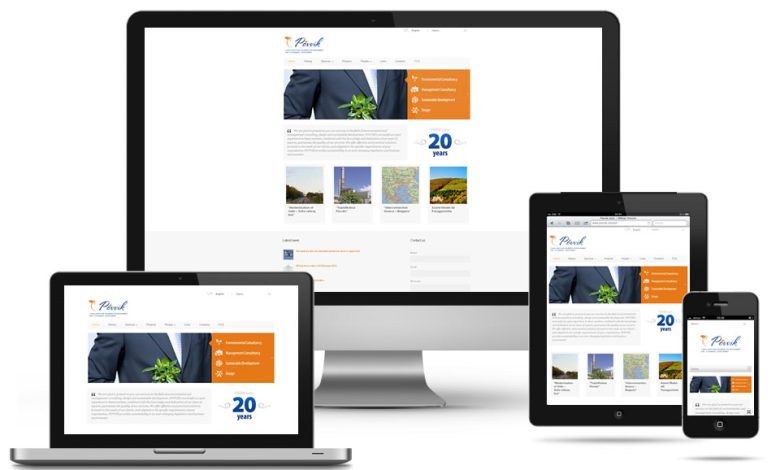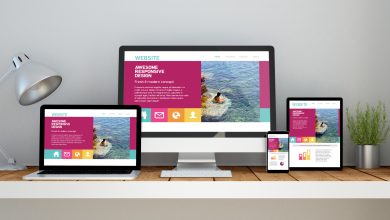
Table of Contents
ToggleIn today’s fast-paced digital age, your website is often the first point of contact potential customers have with your brand. Whether you’re launching a new business, rebranding, or simply looking to improve your online presence, having a well-designed website is crucial to your success. However, creating a high-quality website involves more than just aesthetic appeal; it requires strategic planning, user-focused design, and seamless functionality.
That’s where a professional website design agency comes into play. Choosing the right website design agency is one of the most important decisions you’ll make for your business. A great agency will help bring your vision to life, while a poor one could cost you time, money, and valuable customers. In this blog post, we’ll guide you through the process of choosing the best website design agency for your business.
1. Understand Your Goals and Needs
Before you begin your search for a website design agency, it’s essential to understand what you want your website to achieve. Ask yourself questions like:
- What is the purpose of the website? (Is it to showcase your products, capture leads, or provide information?)
- Who is your target audience?
- What features and functionality do you need? (E-commerce capabilities, booking systems, or a blog, for example?)
- Do you need ongoing support for maintenance, or is this a one-time project?
Understanding your needs upfront will help you narrow down your choices and ensure you’re looking for agencies that specialize in the services you require. Having clear goals will also make it easier to communicate your vision to potential agencies, setting the stage for a successful collaboration.
2. Check the Agency’s Portfolio
One of the most effective ways to evaluate the expertise and capabilities of a website design agency is by reviewing their portfolio. A strong portfolio should give you a clear idea of the types of websites they have designed in the past and whether their style aligns with your brand. Look for a portfolio that includes:
- A diverse range of websites across different industries
- Examples of clean, modern, and user-friendly designs
- Sites that are visually appealing but also functional and easy to navigate
- Projects that reflect a deep understanding of the businesses they served
If possible, try to view live versions of the websites to get a sense of their performance, load times, and user experience. A well-rounded agency should be able to showcase its ability to create websites that meet both design and functional requirements.
3. Look for Experience in Your Industry
Experience matters when it comes to website design, especially if your business operates in a specialized industry. An agency that has worked with clients in your industry will have a better understanding of your target audience and their specific needs.
For example, if you’re in the e-commerce space, you’ll want to find an agency with experience in designing online stores, as they’ll understand the importance of product pages, shopping carts, and secure checkout processes. Similarly, if you run a service-based business, look for an agency that has experience building lead-generation websites that effectively capture visitor information.
Industry experience isn’t just about design, though; it also includes familiarity with relevant tools, trends, and regulations. An experienced agency will be able to guide you through the unique challenges of your industry and deliver a website that meets your business goals.
4. Evaluate the Agency’s Expertise and Services
Website design is more than just creating visually appealing pages. A truly great website requires an in-depth understanding of user experience (UX), search engine optimization (SEO), website performance, and even content creation. When researching agencies, pay attention to the range of services they offer, such as:
- User Experience (UX) Design: A top agency will prioritize creating an intuitive and seamless experience for users, making it easy for visitors to navigate the site and find what they need.
- SEO Services: SEO is critical for ensuring your website ranks well in search engines. Make sure the agency includes SEO optimization as part of its design process to boost organic search traffic.
- Responsive Design: With increasing mobile usage, your website needs to look and work well across various devices. Ensure that the agency has experience with responsive web design.
- Content Management Systems (CMS): Many agencies work with popular CMS platforms like WordPress, Shopify, and Squarespace. Ensure they have experience with the platform you prefer (or are open to using one you recommend).
- E-commerce Capabilities: If you plan to sell products online, your agency must be well-versed in e-commerce platforms, payment gateways, and security features.
By choosing an agency with expertise in these areas, you can ensure that your website is not only visually appealing but also functional, optimized, and capable of growing with your business.
5. Read Client Reviews and Testimonials
A reputable agency should have a long list of happy clients who can attest to the quality of their work. Before making a decision, take the time to read online reviews, case studies, and client testimonials. Look for feedback that mentions:
- The agency’s ability to meet deadlines and stay on budget
- The level of communication and collaboration throughout the project
- How well the website has performed since launch (in terms of traffic, conversions, etc.)
- The overall satisfaction with the final product
While one or two negative reviews aren’t necessarily a red flag, a pattern of poor feedback should raise concerns. Consider reaching out to past clients for a more in-depth perspective on the agency’s performance and how they handled challenges during the project.
6. Consider the Agency’s Communication and Support
A successful website design project depends heavily on clear and open communication between you and the agency. When you first reach out to an agency, assess how responsive they are and how well they listen to your needs. Are they asking thoughtful questions about your business goals? Do they provide helpful suggestions, or are they just pushing a generic solution?
Additionally, consider the agency’s approach to ongoing support and maintenance. Once the website is live, you may need updates, bug fixes, or new features added. Make sure the agency offers post-launch support and is willing to be a long-term partner in maintaining your site.
7. Set a Realistic Budget
Website design can vary greatly in cost depending on the agency’s expertise, the complexity of the project, and the features you need. While it’s important to stick to your budget, don’t automatically go for the cheapest option. A well-designed website is an investment in your business, and quality design often comes at a premium.
Request quotes from several agencies to compare prices, but keep in mind that the cheapest option may not provide the best value. Consider the long-term return on investment (ROI) of a website that is well-designed, user-friendly, and optimized for success. In many cases, spending more upfront on a quality site will pay off in the form of higher conversions, improved customer satisfaction, and better brand reputation.
8. Trust Your Instincts
Finally, trust your instincts when choosing a website design agency. You want to work with a team that understands your vision, communicates effectively, and has the expertise to deliver a high-quality product. If you feel comfortable working with them and confident in their abilities, that’s a great sign.
Conclusion
Choosing the right website design agency is a critical decision for your business’s success. By understanding your goals, reviewing portfolios, checking client testimonials, and evaluating expertise, you can make an informed choice that ensures your website aligns with your vision and meets the needs of your target audience. With the right agency by your side, your website can become a powerful tool to attract and engage customers, grow your brand, and drive business success.









